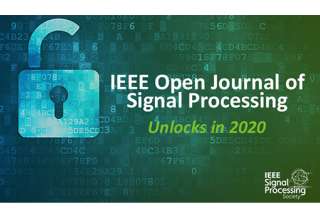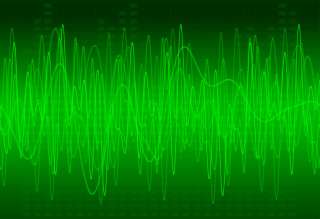SPS Feed
Top Reasons to Join SPS Today!
1. IEEE Signal Processing Magazine
2. Signal Processing Digital Library*
3. Inside Signal Processing Newsletter
4. SPS Resource Center
5. Career advancement & recognition
6. Discounts on conferences and publications
7. Professional networking
8. Communities for students, young professionals, and women
9. Volunteer opportunities
10. Coming soon! PDH/CEU credits
Click here to learn more.
The Latest News, Articles, and Events in Signal Processing

Amazon AI has open positions in Palo Alto, California, for applied scientists (both interns and full time)
in all areas of human language technology, with special focus on Deep Learning (DL) models for
speech recognition, machine translation and text-to-speech.
The saliency detection technologies are very useful to analyze and extract important information from given multimedia data, and have already been extensively used in many multimedia applications. Past studies have revealed that utilizing the global cues is effective in saliency detection. Nevertheless, most of prior works mainly considered the single-scale segmentation when the global cues are employed. In this paper, we attempt to incorporate the multi-scale global cues for saliency detection problem.
With the development of video coding technology, high-efficiency video coding (HEVC) has become a promising alternative, compared with the previous coding standards, for example, H.264. In general, H.264 to HEVC transcoding can be accomplished by fully H.264 decoding and fully HEVC encoding, which suffers from considerable time consumption on the brute-force search of the HEVC coding tree unit (CTU) partition for rate-distortion optimization (RDO).
Predicting articulatory movements from audio or text has diverse applications, such as speech visualization. Various approaches have been proposed to solve the acoustic-articulatory mapping problem. However, their precision is not high enough with only acoustic features available. Recently, deep neural network (DNN) has brought tremendous success in various fields, like speech recognition and image processing.
The aim of this paper is to present a new method for skin tumor segmentation in the 3D ultrasound images. We consider a variational formulation, the energy of which combines a diffuse interface phase field model (regularization term) and a log-likelihood computed using nonparametric estimates (data attachment term).
The procedure for extracting a cryptographic key from noisy sources, such as biometrics and physically uncloneable functions (PUFs), is known as fuzzy extractor (FE). Although FE constructions deal with discrete sources, most noisy sources are continuous. In the continuous case, it is required to transform the source to a discrete one.
Spectrum auction is an effective approach to improve the spectrum utilization, by leasing an idle spectrum from primary users to secondary users. Recently, a few differentially private spectrum auction mechanisms have been proposed, but, as far as we know, none of them addressed the differential privacy in the setting of double spectrum auctions.
In this paper, the achievable secrecy rate of a relay-assisted massive multiple-input multiple-output (MIMO) downlink is investigated in the presence of a multi-antenna active/passive eavesdropper. The excess degrees-of-freedom offered by a massive MIMO base-station (BS) are exploited for sending artificial noise (AN) via random and null-space precoders.
Constrained image splicing detection and localization (CISDL), which investigates two input suspected images and identifies whether one image has suspected regions pasted from the other, is a newly proposed challenging task for image forensics. In this paper, we propose a novel adversarial learning framework to learn a deep matching network for CISDL.
The importance of normalizing biometric features or matching scores is understood in the multimodal biometric case, but there is less attention to the unimodal case. Prior reports assess the effectiveness of normalization directly on biometric performance. We propose that this process is logically comprised of two independent steps: (1) methods to equalize the effect of each biometric feature on the similarity scores calculated from all the features together...
Sparse coding-based anomaly detection has shown promising performance, of which the keys are feature learning, sparse representation, and dictionary learning. In this paper, we propose a new neural network for anomaly detection (termed AnomalyNet) by deeply achieving feature learning, sparse representation, and dictionary learning in three joint neural processing blocks. Specifically, to learn better features,...
Nonlinear acoustic echo cancellation (AEC) is a highly challenging task in a single-microphone; hence, the AEC technique with a microphone array has also been considered to more effectively reduce the residual echo. However, these algorithms track only a linear acoustic path between the loudspeaker and the microphone array.
Pages
SPS Social Media
- IEEE SPS Facebook Page https://www.facebook.com/ieeeSPS
- IEEE SPS X Page https://x.com/IEEEsps
- IEEE SPS Instagram Page https://www.instagram.com/ieeesps/?hl=en
- IEEE SPS LinkedIn Page https://www.linkedin.com/company/ieeesps/
- IEEE SPS YouTube Channel https://www.youtube.com/ieeeSPS












